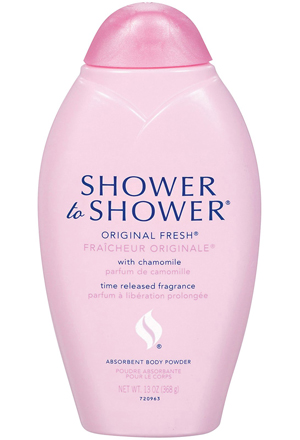Top Class Actions’s website and social media posts use affiliate links. If you make a purchase using such links, we may receive a commission, but it will not result in any additional charges to you. Please review our Affiliate Link Disclosure for more information.

Medical experts find this data troubling due to the popularity of talcum powder and the number of women who use it on their genital area after showering.
The study surveyed women who use talcum powder on different parts of their bodies and analyzed the increased risk likelihood of ovarian cancer and other possible injuries.
Researchers concluded that women who use talcum powder in their genital area are 24 percent more likely to develop ovarian cancer because the powder travels directly through blood-stream after it enters the vaginal wall.
This study is among the latest investigations into the possible link between ovarian cancer and talcum powder. It conducted at Brigham and Women’s Hospital in Boston and used date compiled from eight separate studies to find a definitive answer on the matter.
The researchers analyzed data from 8,525 women who were diagnosed with ovarian cancer and had used talcum powder. They were compared to another 9,800 women who had also used talcum powder, but had remained cancer free.
Researchers stressed that the highest likelihood of ovarian cancer development is when the powder is applied in the genital area.
Research suggests that Caucasian women with a certain genetic profile are at the highest risk. Women who carry the gene called glutathione S-transferase M1 (GSTM1), but lacking a gene called glutathione S-transferase T1 (GSTT1), are nearly three times as likely to develop ovarian tumors.
Overview of Baby Powder Cancer Dangers
Talcum powder products are primarily used for baby powder and general body powder, and are comprised of a widely-used mineral called talc. A number of companies sell talc products, including Johnson & Johnson’s Shower-to-Shower and Johnson’s Baby Powder.
However, the recent concerns of ovarian cancer has led to given rise to more litigation and health concerns, including a baby powder class action lawsuit investigation. The concern of ovarian cancer in conjunction with talc has been around as early as 1971, with researchers finding talc embedded in 75 percent of all the ovarian tumors they studied.
One of the most recent studies was published in the June 2013 issue of the medical journal Cancer Prevention Research, indicating that women who used genital powder containing talc may face a 20 percent to 30 percent greater risk of developing ovarian cancer.
In 2014, the Cancer Research UK organization updated its webpage on Ovarian Cancer Risks and Causes to include the possible connection of ovarian cancer and talc. However, the organization also stated that medical experts were still unsure if the cause of ovarian cancer came from the specific appliance to the genital area, or if it had to do with prolonged use.
Cancer experts state that even if a risk is present, the risk is small and unlikely to happen. Experts also state that exploring the possible connection would be in for the best interest of public health. Additionally, manufacturers should include a warning or indication of ovarian cancer on their talc powders.
Baby Powder Cancer Lawsuits
The first and only-known talcum powder cancer lawsuit was won in October 2013, when a South Dakota woman sued Johnson & Johnson for her ovarian cancer development. She claimed that in direct consequence of using the defendant’s Shower-to-Shower body powder, she developed ovarian cancer. The jury ruled in favor of the plaintiff, finding that the scientific evidence supported the woman’s claims.
During the trial, Daniel Cramer, a medical expert from Harvard University, testified on the plaintiff’s behalf. He explained that he had been investigating the potential link between talc and ovarian cancer for 30 years. He suggested that talcum powder may cause 10,000 cases of ovarian cancer every year.
In general, baby powder cancer lawsuits are filed individually by each plaintiff and are not class actions.
Do YOU have a legal claim? Fill out the form on this page now for a free, immediate, and confidential case evaluation. The attorneys who work with Top Class Actions will contact you if you qualify to let you know if an individual lawsuit or class action lawsuit is best for you. Hurry — statutes of limitations may apply.
ATTORNEY ADVERTISING
Top Class Actions is a Proud Member of the American Bar Association
LEGAL INFORMATION IS NOT LEGAL ADVICE
Top Class Actions Legal Statement
©2008 – 2024 Top Class Actions® LLC
Various Trademarks held by their respective owners
This website is not intended for viewing or usage by European Union citizens.
Get Help – It’s Free
Join a Free Baby Powder Cancer Class Action Lawsuit Investigation
If you used Johnson’s Baby Powder, Shower to Shower, or another talcum powder product and were diagnosed with ovarian cancer, you may have a legal claim. Family members of loved ones who died of ovarian cancer can also join. Submit your information now for a free case evaluation.
An attorney will contact you if you qualify to discuss the details of your potential case at no charge to you.












